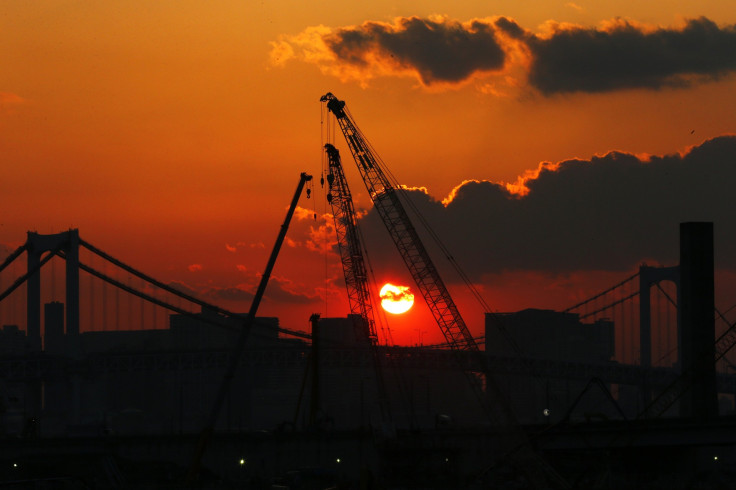Japan Out Of Recession: Yen Depreciation And Other Factors Leading To Growth—Report

Japanese economy has reportedly come out of recession. The depreciation of its currency, the stimulus provided by Bank of Japan and the reforms undertaken by Prime Minister Shinzo Abe are said to be some of the reasons why the country has been able to post growth in GDP.
After posting a GDP growth of 2.2 percent, Japan is said to have come out of the recession. According to a report by Fortune, one of the major factors influencing the economic growth in the country is the depreciation of yen.
According to the report, the depreciation of yen has led to increased demand for Japan’s high-tech products that were said to be comparatively more expensive. The increased demand for Japanese goods is said to have led China to complain that the country is dumping its goods in the international market.
China has placed anti-dumping duties on the import of Japanese stainless steel pipes. Japan will reportedly file an appeal with the World Trade Organisation over the duties imposed by China. China is known as “The World’s Factory” and the economy relies heavily on the export of its inexpensive products in the international market.
Another factor that may have contributed to Japan pulling out of the recession is the commitment to economic reforms by Prime Minister Shinzo Abe. Outlining the agenda for the future, the Japanese Prime Minister explained his plan in a policy speech to the country’s legislature recently.
“Most drastic reforms since the end of World War II,” Mr. Abe said would be required to put the country back on track of growth. The Prime Minister highlighted some of the focus areas to achieve growth that include reform in agriculture, trade pacts with other nations, reduction in the corporate tax rate, administrative and energy sector reforms.
One of the major impacts of Japan coming out of a recession may have been felt by the small and medium-sized enterprises and in the job market of the country. According to Mr. Abe’s statement, the number of bankruptcies in the small and medium sized enterprises was at its lowest level in 24 years. Permanent employment is said to be at its highest level in the past 10 years and Japan is said to have witnessed its highest wage increases in the last 15 years.
For questions/comments regarding the article, you may email the writer at s.trivedi@ibtimes.com.au





















